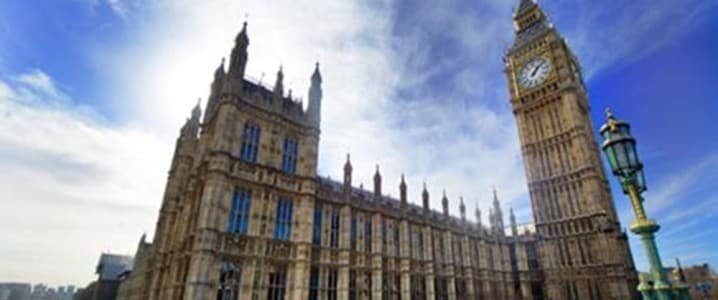Overall, the UK election campaign has not been a major focus for investors.
The pound has remained in a relatively narrow range and is trading at its highest level against the euro in more than two years. British government bonds have also remained broadly unchanged, suggesting there is little risk premium associated with the change in government.
This may be because Labour has consistently held leads of around 20 points in the polls, with the latest YouGov poll suggesting it is on track to win its biggest majority since the passing of the Reform Act in 1832.
Labour has portrayed itself as a truly pro-business party by promising stability, and has pledged to stick to the same fiscal rules as the Conservatives, suggesting there is little risk of financial collapse.
“The UK election appears to have pushed markets down the pecking order as attention shifted to the French and US votes,” Deutsche Bank analysts wrote.
“Given little fluctuation in opinion polls over the election period, it is likely that a Labour majority is already priced in,” they continued.
“We struggle to identify any big risks to the pound heading into today’s vote,” said Francesco Pesole, a currency analyst at Dutch bank ING.
Elsewhere, interest was even weaker. “Even though there’s not much at stake, the Fourth of July vote seems to be generating about the same amount of excitement as the national soccer team,” said Mark Dowding, chief investment officer at RBC BlueBay Asset Management.
The UK’s expected election results stand in stark contrast to the ongoing French elections and the looming presidential election across the Atlantic.
France’s centre and left-wing parties are doing all they can to stop Marine Le Pen’s National Rally from securing a majority in parliamentary elections as internal negotiations over Joe Biden’s future continue.
Markets appear to like Britain’s relative political stability: In a June survey by Bank of America, fund managers said Britain was currently their favorite European stock market.
Meanwhile, analysts at Capital Economics said British assets could benefit from greater political and financial stability, especially compared with France and the United States.
“It feels strange to say it, but the UK may be entering a period of beacon political and economic stability,” said Alex Kerr, assistant economist at Capital Economics.
Chris Dorrell (via CityAM)
Other popular articles from Oilprice.com:

